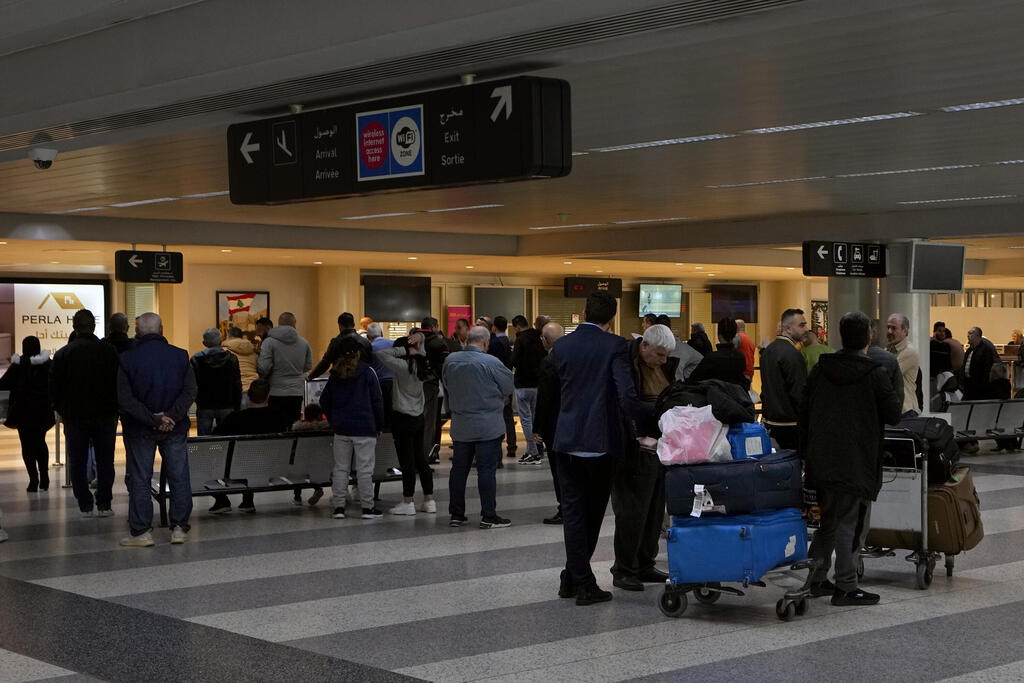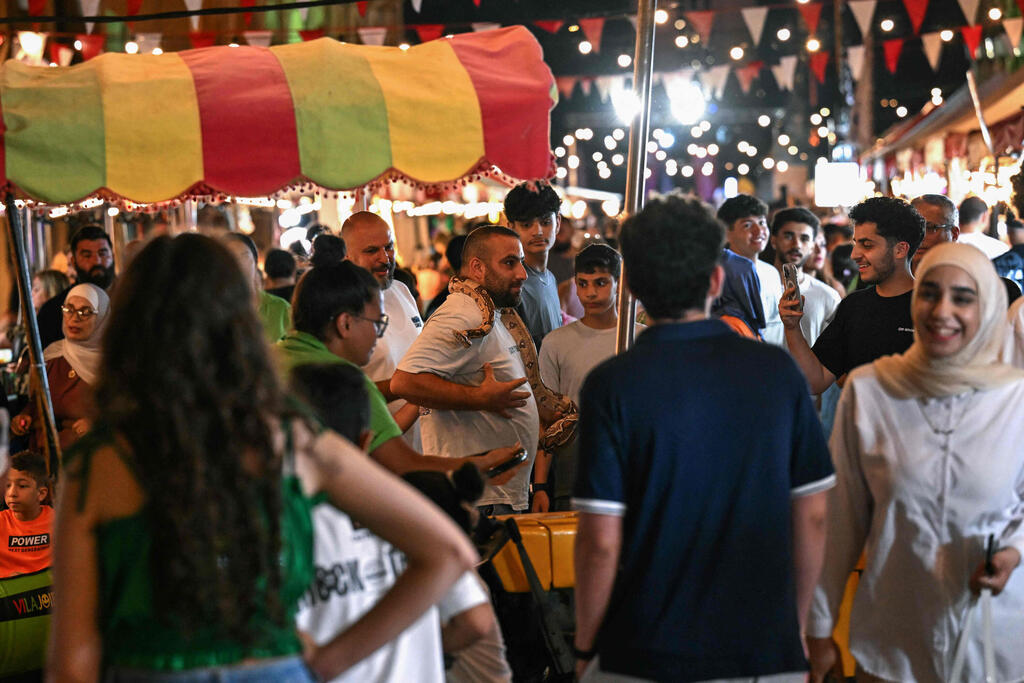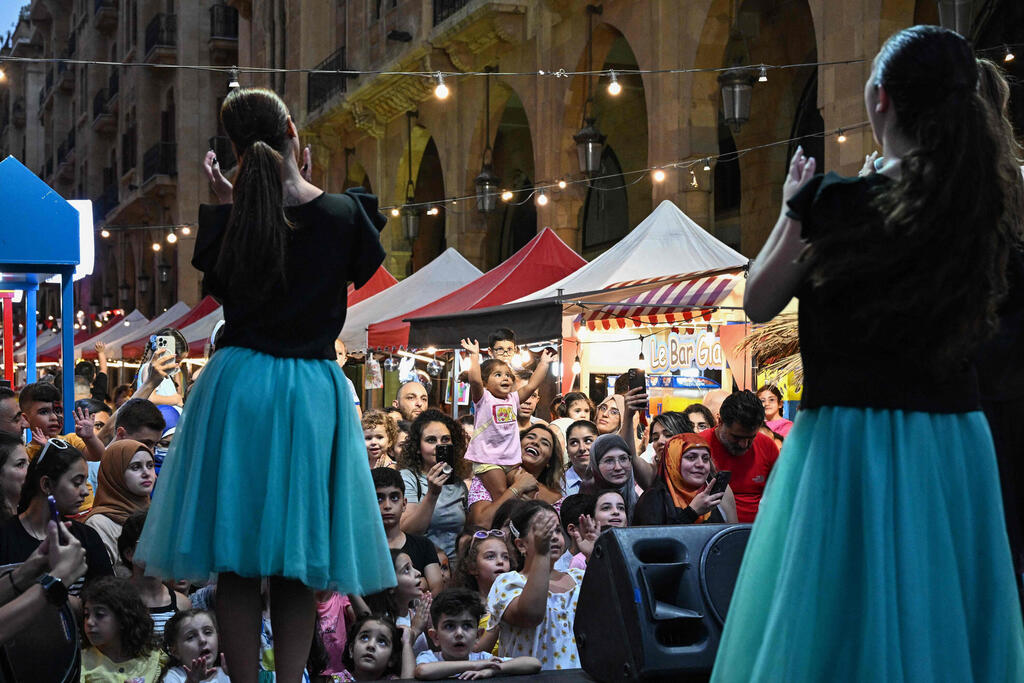The recent revelation by The Telegraph about Hezbollah's extensive weapons cache at Beirut's Rafic Hariri Airport has set Arab social media on fire. For years, Israel has made similar claims, but the British newspaper has now presented insider testimonies from airport workers. These accounts detail how Hezbollah operatives control the airport and how Iranian missiles and weapons are flown in and stored there, posing a significant risk to civilians who use it every day. Despite these alarming reports, life in Beirut continues with its usual festivals and daily activities.
The risk, however, is evident: Thousands of citizens pass through Beirut's main airport daily, making it a crucial exit and entry point for Lebanon's residents. As Hezbollah remains steadfast and refuses to compromise amid ongoing Gaza conflicts, more affluent residents are opting to flee, fearing the potential for war.
Concerns among airport workers have escalated. One worker, speaking to The Telegraph, said:: “This is extremely serious, mysterious large boxes arriving on direct flights from Iran are a sign that things got worse. When they started to come through the airport, my friends and I were scared because we knew that there was something strange going on.”
This whistleblower expressed fears that an attack or explosion at the airport could cause catastrophic damage, likening it to the devastating Beirut port blast in August 2020.
"Beirut will be cut off from the world, not to mention the number of casualties and damage," he warned. "It's only a matter of time before a disaster also happens at the airport," he said.
Hezbollah has previously been accused of storing weapons at the civilian airport in the past, but the employee - described as a whistleblower - emphasized that it has intensified since the outbreak of the war in October.
In this tense atmosphere, Lebanese citizens naturally fear the potential of an explosion at the airport, whether by accident or an Israeli attack.
Official Lebanon has denied the report, with Lebanese Transport Minister Ali Hamie calling the information incorrect. He has invited media and ambassadors to visit the airport to verify the claims. He also said that he was consulting with Lebanese Prime Minister Najib Mikati about filing a lawsuit against The Telegraph for "the publication that harms Lebanon."
The Lebanese Airlines Association has also dismissed The Telegraph's article as unfounded, accusing the newspaper of spreading "deceptions and lies." The association invited media to inspect the airport themselves.
Skepticism and support beyond Lebanon
The Arab world remains skeptical of the Lebanese denials. Saudi Arabia's Al-Hadath channel even dedicated a special broadcast to The Telegraph's revelation. Lebanese journalist Ali Al-Amin suggested that "the things published are not unreasonable. Hezbollah has previously exploited the airport, which holds significant security value for it."
Lebanese political writer Fadi Al-Ahmar criticized Hezbollah, asserting that "Hezbollah has turned Rafic Hariri Airport into Qassem Soleimani Airport." He added that the terror organization's methods are detrimental to Lebanon despite widespread sympathy for Gaza among Lebanese citizens.
Syrian opposition figure Asaad Al-Zoubi also weighed in, stating that "Iranian militias exploit civilian facilities, including airports in Beirut and Damascus." He argued that while Hezbollah might challenge Israel, it lacks the means to truly defeat it.
The Alma Research and Education Center for Israel's Security Challenges in the North has long argued that Hezbollah exploits Beirut's airport. This was reiterated in a recent article about the Lebanese army. According to the Alma Center, Hezbollah's influence extends to Lebanon's border crossings, including the airport. Tal Be'eri, head of the research department at Alma, noted that "Hezbollah representatives are present at navy radars or airport radars," either physically or through remote control of officers and soldiers working for them.
Brig. Gen. (Res.) Assaf Orion from the Institute for National Security Studies (INSS) also emphasized that Hezbollah frequently uses the Lebanese army, particularly at border crossings. He recounted an instance where Hezbollah influenced the appointment of an army officer responsible for the airport. Orion added that seaports and border crossings from Syria are also likely routes for Hezbollah to transfer equipment and weapons, often with the Lebanese army covering for them.
Despite the rising tensions, life in Lebanon continues. Residents told AFP that the situation on the streets differs from media portrayals, with Eli, a resident of Beirut's Mar Mikhael neighborhood, stating: "What the foreign press reports indicate that Lebanon is in a state of war."
Mar Mikhael, known for its vibrant cafes and bars, remains lively. "This is Lebanon and this is our history. Nothing changes; we survived the July War," Eli said, referring to the 2006 Lebanon War. According to him, people continued to enjoy life even during past crises, including the coronavirus pandemic and the Beirut port explosion.
Abeer Atallah, who attended a festival in central Beirut, echoed this sentiment. "Despite all the threats, we are a people who love life," he said.
According to the United Nations, 95,000 Lebanese have been displaced from the border area since the war began in October, but life goes on in other parts of the country. "We live day to day. Of course, people are afraid, but we trust in God," said Mira, a children's toy seller. "The Lebanese love to celebrate," she added, emphasizing her resolve to stay in Lebanon even if a full-scale war breaks out.
While some central summer festivals in Lebanon have been canceled, others continue as planned. Arab singers are still performing in Lebanon, with Egyptian singer Amr Diab drawing a crowd of 20,000 in mid-June. Nayla Haddad, attending a festival in central Beirut, concluded, "I don't think a war is likely to break out, and we're not afraid. Otherwise, we wouldn't see this entire crowd."






